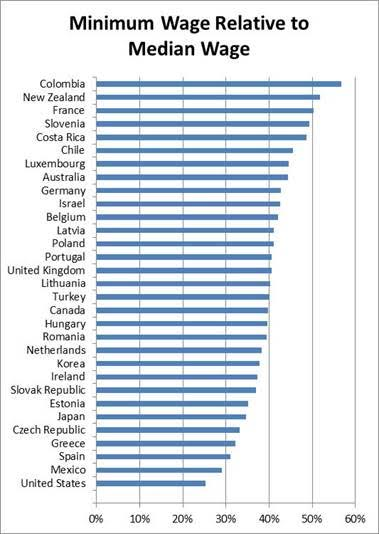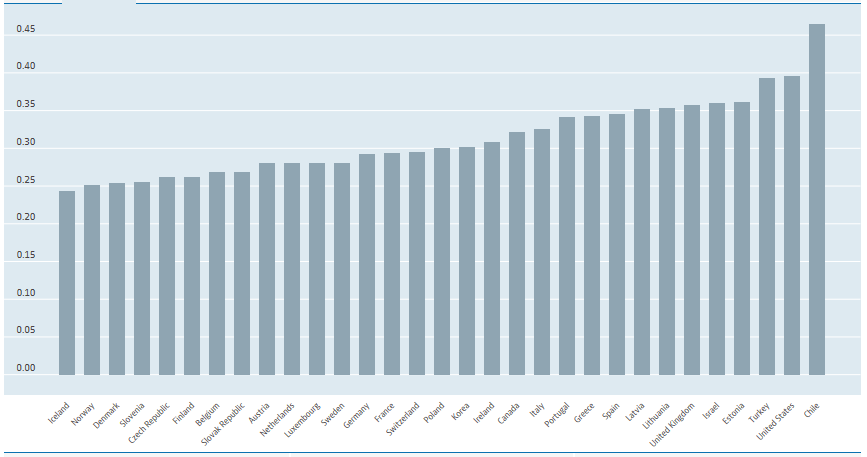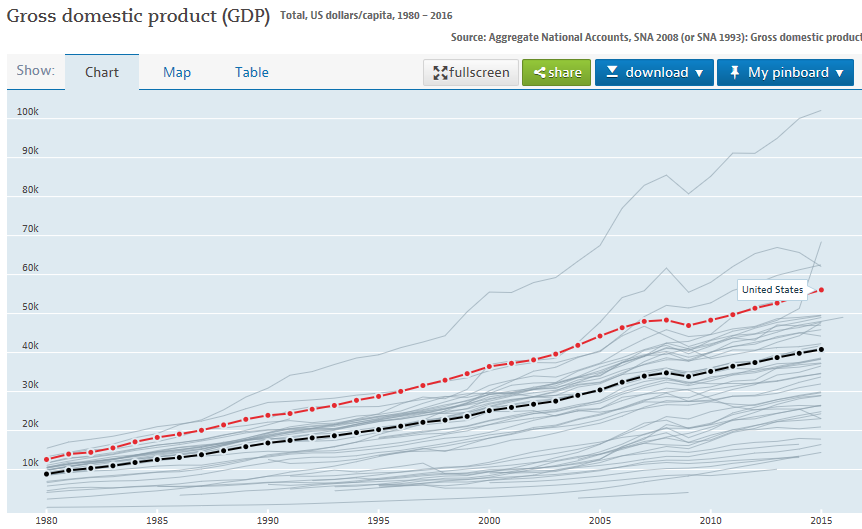I did not stream any of Monday morning’s legislative hearing on the state senate bill to raise the minimum wage to $12 over five years (SB106). And I only caught some bits and pieces of last week’s hearing on the Assembly bill to raise the wage to $15 over five years (AB175).
Apparently my name came up during the senate hearing. Almost. Majority Leader Aaron Ford cited the piece I wrote for the NV Indy explaining that assertions from the governor’s office notwithstanding, workforce development is not, in point of fact, a substitute for raising the minimum wage. Alas, Ford did not attribute it to Hugh Jackson (me), but Hugh Anderson (of whom one suspects there are many but the only notable area Hugh Anderson of which I’m aware is the guy who reads local stock quotes on the public radio station; never met him but he sounds nice enough).
Well, this is what I get for never, ever, ever going to Carson City, I suppose (“Who the hell is Hugh Whatsit?”). Seems a small price to pay — especially if Ford is going to refer to my work in aid of getting the workforce development argument out of the minimum wage debate, wherein it does not belong.
But back to the hearings. From the little I watched, and gleaned (as it were) from social media and news accounts, business lobbyists and individual business owners would like the legislature to know that if they have to pay a higher minimum wage, it’ll really hurt. It’ll even make them shut their doors:

Whoa, if true — and not just because raising wages from $8.25 to $12 over five years would close down a business. There’s a bigger whoa.
“America as a whole is an outlier among advanced economies,” according to a report in the Economist, a fine publication but not one typically given to flights of wild-eyed socialist fancy. “Given the pattern across the rest of the OECD, a group of mostly rich countries, one would expect America, where GDP per person is $53,000, to pay a minimum wage around $12 an hour.”
More on per capita GDP in a moment (I can tell you’re excited), but this profound American exceptionalism (and not the good kind) wherein the U.S. is “an outlier” was underscored in a graphic that uses OECD (Organization for Economic Cooperation and Development) data, and that was shared with me by UNR economist Elliott Parker while I was reporting that aforementioned story in the Indy. The graph measures minimum wage as a percentage of the median wage in developed economies. I know you know but if you don’t: the median wage is the wage at which half make more and half make less, and it’s a far more reliably representative measure than averages, which can be easily skewed by a relatively few lavishly paid white guys in ties.

Oh look the U.S. is at the bottom.
Each of those nations is to greater or lesser degree committed to market economics, but arguably none is more committed — more all in — when it comes to market worship than the U.S. Except maybe Chile (thanks, Kissinger).
And speaking of Chile – this chart compares income inequality as measured by the GINI index, in which O equals complete equality and 1 equals complete inequality.

Having trouble finding the United States.? It’s off to the right — yes, the far right. Just left of Chile. The gap between rich and poor in the U.S. is among the most pronounced in the developed world.
Here’s one more OECD chart, in which we return (as threatened!) to gross domestic product per capita. The U.S. is looking pretty good here.

Only four nations had higher GDP per capita than the U.S. as of 2015 – Switzerland, Norway, Ireland, and way, way up there at the top, Luxembourg, where there is lots and lots of money but only about 19 people.
So of all the OECD “developed” nations, the U.S. enjoys one of the world’s highest GDP per capita, yet has the second highest income inequality, and the lowest minimum wage compared to the median wage.
Whoa.
It’s a distribution problem of course, and if paying employees in the United States (Nevada is one of those states) $12 an hour by 2022 would make businesses close down, well, I feel for the restaurant guy. I guess. But he also may want to ask someone — perhaps a powerful politician with whom he has an acquaintance — What is wrong with the U.S. free market that it fails to provide hard working people with a living wage? Why is the market economy failing? And what policies can we implement to compensate for market failure?
*******
It is, I think, a particularly good question for lobbyists who represent fast food, big box and national brand retailers.
McDonald’s, Wal-Mart, Yum — companies that are also among the nation’s largest employers — have been spending billions of dollars on stock buybacks over the last few years. When a company buys back its own stock, it takes it off the market, thus raising the price of the remaining stock. Usually, anyway. So-called “activist” investors pressure companies to do this, because it enriches the relatively small group of people who own most publicly traded stock. And CEOs are happy to oblige, because their salaries and bonuses are tied to stock price.
Meantime, state-level restaurant and retail associations, along with assorted chambers of commerce — wittingly or not — handle the lobbying for them, warning legislative committees that raising the minimum wage will throw people out of work — the very people, in fact, who supporters of the wage want to help.
I don’t doubt the sincerity of most — ok, some — alright, I don’t doubt the sincerity of perhaps one or two of these lobbyists. But legislators should go ahead and ask lobbyists for retail and restaurant chains, How come these companies can’t afford to pay a higher wage, when they can afford to spend billions on stock buybacks?
I don’t expect that question or any other to change anyone’s mind in Carson City, where things, even as viewed from afar, seem to happen for reasons other than, well, reason. But what the hell, if everyone was paid as well as influential lobbyists the Nevada GINI index would be the envy of the world. Might as well give them something to do while they’re milling about waiting for the governor to sign business’s handsomely monetized shenans and veto all the nice things.